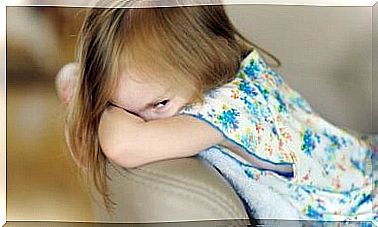Five Signs You’re Raising Narcissistic Kids

Teaching our children self-confidence is something that we as parents cannot ignore, after all, it is necessary for healthy emotional development. However, some parents are so obsessive about their children’s self-esteem that they go overboard, turning them into narcissists.
A recent study revealed that parents who think their children are better than others do not contribute to their self-esteem. Rather, they harm their children because they increase their risk of developing narcissism. The study concluded that in order to improve children’s self-esteem, it is important that they know that they are loved, but that they are not better than others.
According to the researchers, parents who see their children as more special and privileged than others cause their children to develop the idea that they are superior, which is the basis for narcissism. But when the parents treat them with affection and appreciation, they will develop the idea that they are valuable individuals, which is the basis for self-confidence.
However, being overvalued by their parents is not the only thing that creates narcissistic children. The researchers suggested that narcissism, like other personality traits, may also be in the genes. As a result, some children are said to be more prone to developing narcissism than others.
How do you know if you’re raising narcissistic children?
The following are clear signs that your parenting style is encouraging the development of narcissism in your children. Reviewing and adjusting these aspects will improve their emotional and psychological development and will help you avoid turning them into narcissists.
Remember that, from a psychological standpoint, narcissism is a personality disorder that negatively affects the lives of those who suffer from it.
1. Making Them Believe They Are Infallible
It is difficult for children to have confidence in themselves. Even when they have the right skills to do something right, they become paralyzed because the possibility of failure terrifies them. To build their confidence you have to give them confidence, you have to encourage and praise them so that they know they can do it.
It is one thing to praise children, recognize their successes and victories, and help them feel confident in their ability to solve problems and become successful in different areas of life. But it’s quite another thing to make them believe that they will never make mistakes.
It is necessary that children learn to deal with mistakes. This is the best medicine for narcissistic children. They also need to understand that mistakes are an inherent part of playing and learning. They have to learn to integrate their mistakes, to fall and get back up, just like when they first learned to walk. Someone who makes mistakes is someone who tries, with the possibility of success.
2. Constantly comparing them to other children to show they are superior
As soon as children are seven or eight years old, they begin to compare themselves with others. Sometimes their interest in these comparisons starts earlier, as a result of their upbringing which is all about showing how good they are or how amazing what they can do.
But these comparisons put a lot of pressure on children, who don’t want to lag behind their peers. When a child excels, it is good to recognize his achievements and virtues, but without comparing him to others.
Being good or even better at something than others does not mean we are superior. However, children see things quite black and white and will only be able to see the different shades of gray that exist in between over time. It is therefore our job to help them discover the nuances of life.
3. Being a role model unable to handle criticism
Hearing criticism is already quite unpleasant for adults, let alone children. But being able to handle criticism constructively is extremely important and we should set an example for our children in this. You don’t have to say yes and amen to everything, but you do have to be able to look at yourself critically, talk about your problems and be willing to change what you can improve.
When children see that their parents can’t take criticism, shield themselves from suggestions from others about changes that might benefit them, or act as if they are always right and never take anything from another, then it is no more than logical that they will do this themselves.
Moreover, some parents cannot even tolerate criticism from their own children, and act irrationally so as not to be cast off the pedestal of perfection and superiority that their children placed them on in the first place, which is worse.
4. Brag about your kids and condone their mistakes
Let’s be honest. It’s one thing to be proud of your kid, and it’s quite another to brag about your kid and defend everything he does to prove he’s the best, with every flaw and flaw through the fingers is seen. This will not make your child the best. Some children will react by rebelling against their parents, and others will only become more narcissistic. Neither of these two options is an easy or healthy way for them.
It’s not bad at all for kids to make a mess once in a while. There is nothing to worry about, nothing to be ashamed of. By always justifying their behavior instead of showing them that no one is perfect, we are robbing our children of an important opportunity to learn.
5. Bad talk about children who are different or ‘inferior’
Children who are different or who are less able are not inferior. However, there are parents who will take every reason to laugh at someone else’s child, be it his intellectual ability, his appearance, the way he is dressed… The bottom line is that the children of these kinds of parents will think they are be better than everyone else.
Talking negatively about others is a way for some people to emphasize their own good qualities. But calling someone else ugly really doesn’t make you more beautiful, just to name one example.
You don’t have to tear someone else down to let your good sides shine. Parents who speak badly about other children so that their own child can feel more important will only cause their child to develop a distorted view of themselves and their worth.
Narcissism: the root of aggression in children









